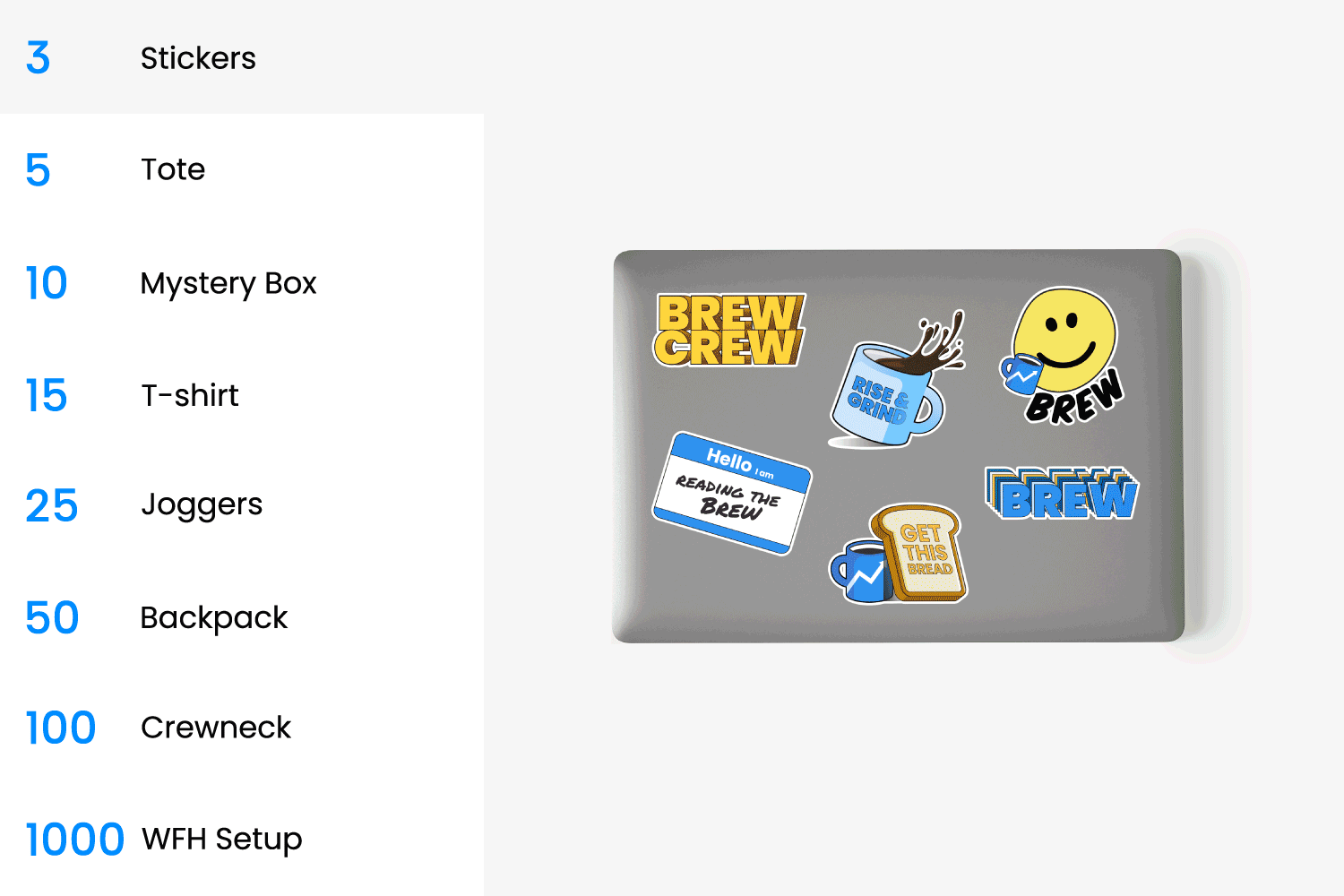Hello again! It’s National Shop For Travel Day, aka your annual reminder to book your next vacation. Be the change you want to see and take that hard-earned PTO.
In today’s edition:
🪜 The power of promotions
 (Remote) work in progress (Remote) work in progress
 HR 101 HR 101
—Courtney Vinopal, Kristen Parisi, Amanda Schiavo
|
|
Nuthawut Somsuk/Getty Images
If you’re an HR professional worried that valuable talent is heading for the exit, raising pay is often seen as the most promising mechanism for keeping employees around.
That’s still the case, according to a new report from the American Opportunity Index (AOI), which measures how large US employers “drive economic mobility and positive career outcomes for their employees.” In a survey of more than 500 employees of Fortune 500 companies conducted by AOI in October, “competitive wages and benefits emerged as among the highest priorities,” according to a report released on Nov. 30.
But HR leaders shouldn’t overlook another powerful retention lever, the report found: Promoting workers from within.
Internal promotion can drive retention. The AOI survey found not only that employees prioritize competitive wages and benefits, but also “lots of opportunity to advance in the workplace.” Some 92% of workers surveyed rated this as important or very important.
Keep reading here.—CV
|
|
Here’s an interesting stat for ya: 70% of decision-makers say AI will be instrumental to success in HR over the next five years. Know what that means? Artificial intelligence is here to stay, so it’s best to learn the ropes.
Fortunately, Workday has data that can help. Based on a recent study conducted by Forrester Consulting, this lifesaver offers tons of golden nuggets on the future of HR and AI’s impact on the workplace.
Still scratching your chin about AI? Well, employees are more optimistic than leaders might think. In fact, 71% of workers say AI gives them a sense of empowerment, and 76% agree that AI could make it easier and quicker for them to find information—huge numbers.
Step into the future of HR.
|
|
Artistgndphotography/Getty Images
Dropbox permanently adopted its remote-first work model in October 2020, after first taking its employees remote along with the rest of the corporate world when Covid-19 hit US shores. While several competitors in the tech industry have called employees back to the office in the last year, Dropbox is doubling down on remote work.
Since rolling out Virtual First, the name the company has given to its approach to remote work, almost 70% of its employees said they’re more effective than they were in an office, according to a survey Dropbox conducted over the summer. Furthermore, 76% have had uninterrupted time to get work done, and 70% have used modified work schedules. Employees are only brought together in-person when necessary, for collaboration purposes.
Virtual First is an approach the company’s CEO, Drew Houston, believes is working, which may in part explain how Dropbox ranked first in culture and values on Glassdoor’s list of top tech companies to work for in 2023.
Despite the virtual model’s apparent success and positive employee feedback, Dropbox workers are facing some challenges in a remote-first world.
Keep reading here.—KP
|
|
Francis Scialabba
Welcome to HR 101. Class is now in session. Today’s discussion will focus on the history of happy hour.
The history. The first happy hour was in 1914, when the US Navy, in an attempt to entertain on-duty sailors, hosted an evening of food, music, and dancing. Happy hour took on another meaning during prohibition, when the 18th amendment, ratified in 1919, barred the manufacture, sale, and transportation of alcoholic beverages in the US. During this period, “happy hour” became a way to describe the illegal act of grabbing a drink between work and home, according to the Huffington Post.
When prohibition ended in 1933, Americans had fully embraced the idea of happy hour, turning it into a socially acceptable form of post-work entertainment, the Huffington Post article continued.
Fast-forward. While happy hours did see a dip in popularity in the wake of the pandemic, employees who’ve returned to the office are fueling their slow comeback, the New York Times reported.
Keep reading here.—AS
|
|
TOGETHER WITH CVS CAREMARK
|
|
Innovative care is here. From breakthroughs with GLP1 medications to the wave of biosimilars hitting the market, healthcare is entering a new era. To help plan sponsors keep up, we chatted with the CVS Caremark team about everything from speeding up prior authorization to managing treatment costs and improving the member experience.
|
|
Francis Scialabba
Today’s top HR reads.
Stat: 46% of US employees say they’re bored most of the workweek. (SHRM)
Quote: “The overarching thing that people need to ask themselves is do they want a job, or do they want a career? Do they want to do as little as they can and make as much as they can? Or do they want to be challenged and grow into what they want to learn?”—Tom Gimbel, CEO of staffing firm LaSalle Network, on what workers should consider when looking for a new job (CNBC Make It)
Read: The Department of Labor is trying to help more than 208,000 US employees recover the $163.3 million in back pay they’re owed by companies accused of violating wage labor laws. (The Hill)
A human future: Did y’know 73% of workers hope their company explores more ways to implement AI? Whatcha waiting for? Read Workday’s commissioned study conducted by Forrester Consulting to get the deets on the future of HR.* *A message from our sponsor.
|
|
Looking to make your next career move? iHireHR has 30k+ handpicked jobs for HR pros, plus easy-to-use tools so you can search and apply from anywhere. Check out these open roles:
Explore even more HR jobs here.
|
|
|
Share HR Brew with your coworkers, acquire free Brew swag, and then make new friends as a result of your fresh Brew swag.
We’re saying we’ll give you free stuff and more friends if you share a link. One link.

Your referral count: 2
Click to Share
Or copy & paste your referral link to others:
hr-brew.com/r/?kid=9ec4d467
|
|
|
✢ A Note From Workday
DISCLAIMER: A commissioned study conducted by Forrester Consulting on behalf of Workday, August 2023.
|
|
|









